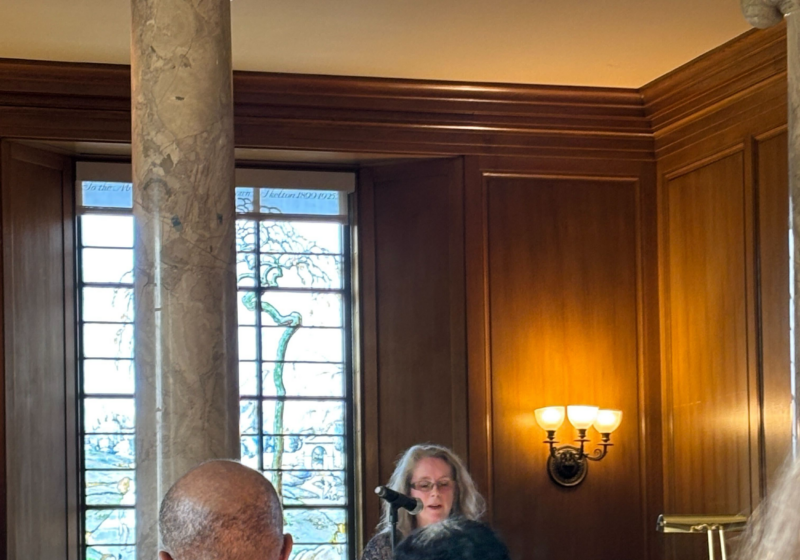As a freshman, I used to savor my measly $500 in declining, reserving this sacred cash for the hot chance of rollover money and a lucky shot to have enough for the D-Day food trucks. Like almost every other first-year on campus, I found myself on a swipe-based meal plan, subject to the mercy of the dining hall hours and whatever happened to be on the menu that day. Each transaction was the same, a “Meliora” sense of infinity that lay at my fingertips every time I decided between Douglass or Danforth. Yet sophomore year came with new classes, new housing, and a brand new meal plan. I’ve begun to switch my budgeting to a new set of rules — girl math.
Girl math is an all-accessible subject, one reserved for neither girls nor mathematicians. It’s a subject popularized through the incredibly academic sources of TikTok and Instagram, and one that makes budgeting, well, far easier than it should be. Girl math is a field that stands upon a sacred set of rules: anything under $5 is free, purchases in cash don’t count, if you’re not buying on a sale you’re losing money, and of course if you’re not getting a daily sweet treat then you’re not doing it right. The University dining plans introduce a new pillar to this set of commandments: Declining isn’t real money.
Now, I will preface: I understand that girl math isn’t a catch-all to save our economy and our spending habits. As much bliss as I try to savor with my (just above) minimum wage job, I’m on a monthly payment plan for my tuition for a reason. My family isn’t well-off and, ergo, neither am I. While I’m lucky to have a strong financial package, that string of grants and federal aid is the only thing keeping my education afloat.
Such has resulted in my typical monetary habits, a sense of stinginess and financial anxiety that prevents me from spending a penny outside of my tuition. I wish I had the means to give into more impulse purchases, or the comfort to get dinner with friends without counting how many extra shifts I’d work to cut even. Yet, when obligated to put up a sum of money for my meal plans, there’s a new dissonance between myself and each Hillside swipe. When it comes to the excess of declining dollars each semester, the money just doesn’t feel real.
Of course, the idea of affording these sweet treats and birthday gifts is not one accessible to all. I spend the majority of my meal plan money at Hillside, buying what I’d call “pseudo-groceries,” yet weeks into the new year, I’ve hardly cut into my spring semester cash. I’ve spent this past semester cooking and budgeting, but I still feel like I have no grip on what exactly this money means. I can’t translate my declining money into any precise value, hence the unnecessary Hillside shopping sprees or failure to register the full responsibility of purchasing snacks for friends. Girl math doesn’t exactly work in stealing, but I haven’t even needed to avoid dropping below zero in my meal plan account. While my real-world financial literacy is admittedly low because there are few resources on the topic in my familial and educational lives, my understanding of declining dollars is even lower. And, this is not helped by Hillside, Pit, and dining hall prices, which seem to rise without even a notice to students.
Just as much as it’s a joking quip, girl math often comes as a consequence of a lack of financial education — an issue that runs far beyond the walls of Hillside and college campuses at large. When your own money feels foreign to you — such as the case with declining — it’s easy to overspend, underspend, and make excuses to justify the most unnecessary of purchases. Nobody check how many cans of sparkling water I have in my dorm.
While this wad of extra spending money (note: prepaid ages ago) keeps me from my typical stingy spending habits, I wish that these past few months on declining had given me a bit more insight as to how money and budgeting truly work. I haven’t instilled standard rules because I haven’t had the need for them, instead finding myself trying to get rid of extra declining as opposed to saving it up. Girl math comes into play because I don’t have the need for normal math — rather, a sense of delusion that keeps me from thinking about the unstoppable tuition-sized hole in my wallet. As much as I’m a girl mathematician, I’m also a low-income student.
With that being said, if anybody is in need of some extra declining and would like to exchange it with cash, my Venmo is @alxholly. I hope to see you there.







